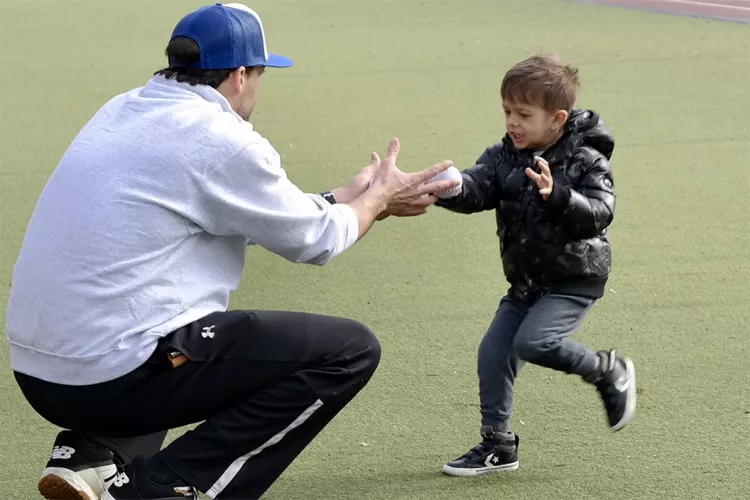Sam Faeder ’07 Brings Mindfulness to Motion in Remote Learning

COVID-19 threw Sam Faeder ’07 a curveball.
As founder and director of New York-based Mindful Sports, Faeder leads youths ages 3 to 10 in after-school programs that combine games and exercise with an artful awareness of the here and now. By teaching “mindfulness in motion,” Faeder says, kids learn how to channel the nerves and anxiety that often accompany performance — in sports, school, and life.
Inspired by his graduate studies on how mindfulness affects stress perception in preadolescent athletes, Faeder launched Mindful Sports in 2019, building on his eight years of experience running a youth baseball program in Manhattan.
But with the coronavirus putting sports on hold this spring, Faeder was forced to alter his game plan — moving lessons online to aid his fledgling business and the 100 kids he works with across Brooklyn.
“I think about it a lot,” he says. “How would we be handling this pandemic without video and all the technology?”
In many ways it’s amazing, but it can also be challenging. For Faeder, a sociology & anthropology major at Swarthmore, the big question was whether his spirited group sessions could translate to a virtual setup, where kids were participating alone and at home.
Unlike traditional mindfulness programs that focus on stillness and slowing down, Mindful Sports plays into children’s need to be active. Each session focuses on a different sport — soccer, kickball, flag football, baseball — with brief bursts of mindfulness woven throughout the lesson, hidden under all the fun stuff. While working on each sport’s fundamentals, Faeder says, the kids also improve their focus and become more resilient.
“A lot of my experience working with young competitive athletes over the years is that they, like all of us, are very challenged with learning how to handle the stress of this world,” says Faeder, who struggled with this firsthand as a baseball standout at Swarthmore and as a professional player after college in Europe and Australia. “I wanted to find a way to help them manage that anxiety and figure out what to do with it. Do you get rid of it, push away, bring it up? What are the strategies that you can use, especially as an athlete or a performer, and how do you do that in real time?”
Particularly when that real time is no longer face-to-face time. After first identifying the senses that would be lost in remote learning — “like the sense of community that you build, even in a small after-school class,” says Faeder, “that sense of participation, inclusion, being a part of something” — “Coach Sam” created online programming that speaks to the needs of kids during the pandemic. Among the offerings are interactive videos with playful workouts, live one-on-one and group sessions with the coach himself, and virtual home baseball games played through video chat with other kids (and without the fear of broken windows).

As founder and director of New York-based Mindful Sports, Faeder leads after-school programs that combine games and exercise with an artful awareness of the here and now.
For families struggling right now to keep kids entertained at home, Faeder suggests tapping into their motivation by turning simple, everyday chores into games. He also stresses the importance of kindness and grace, as the world sends us impossible tasks and assignments.
“Swarthmore taught me how to manage an unmanageable amount of work, both to select the projects that I wanted to be working on, and also to be OK in the discomfort that there are things that won’t get done, that all the boxes might not get checked,” he says. “That has been an incredibly valuable lesson in my life.
“It’s where mindfulness really helps a lot, too,” he adds. “Just taking that deep breath and being like, all right, this is how it is. And that’s OK.”



